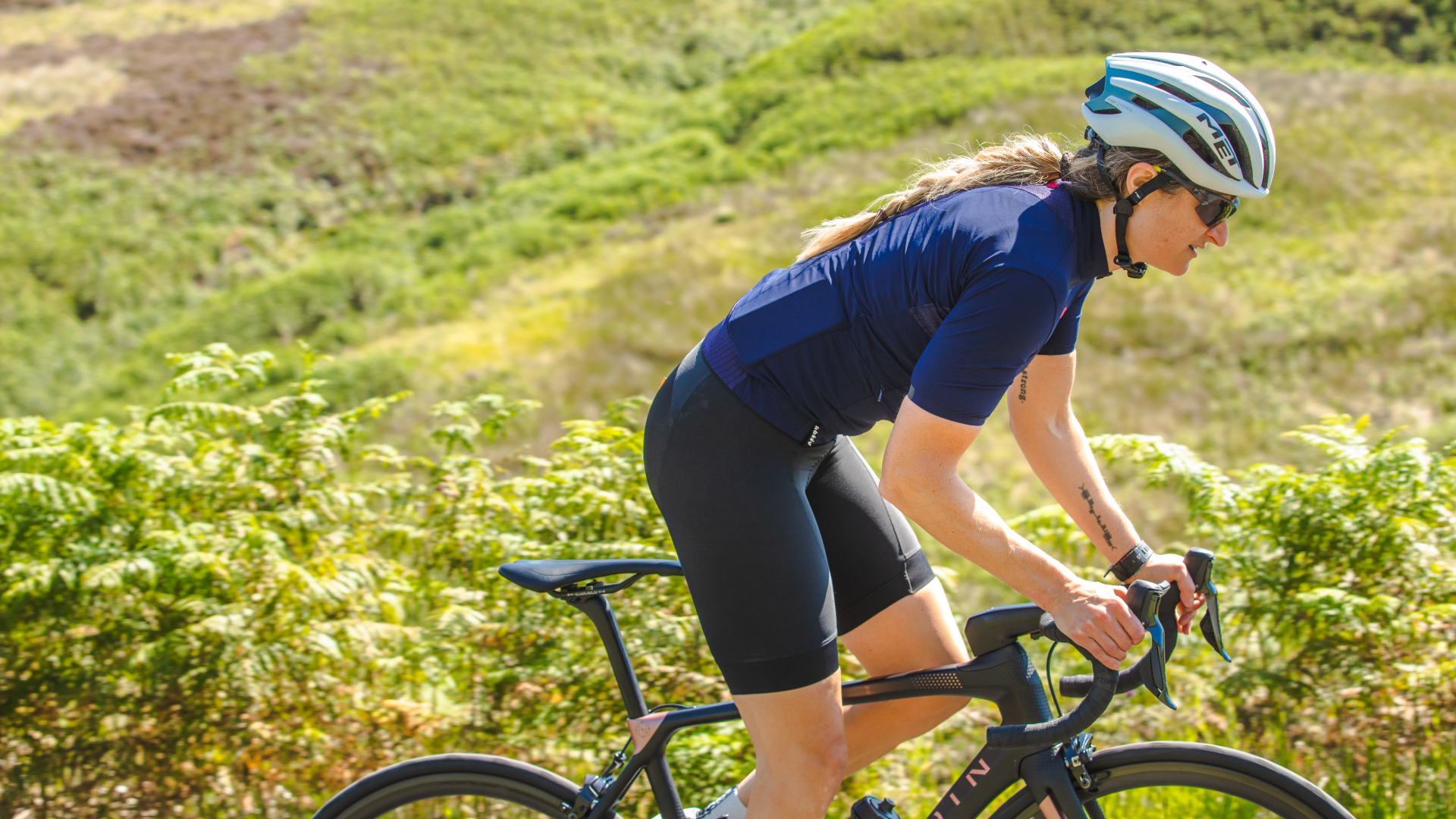What is a 'Sold Secure' rating and how can I ensure my bike lock is tough enough?
All you need to know and how to compare bike lock Grading Levels.

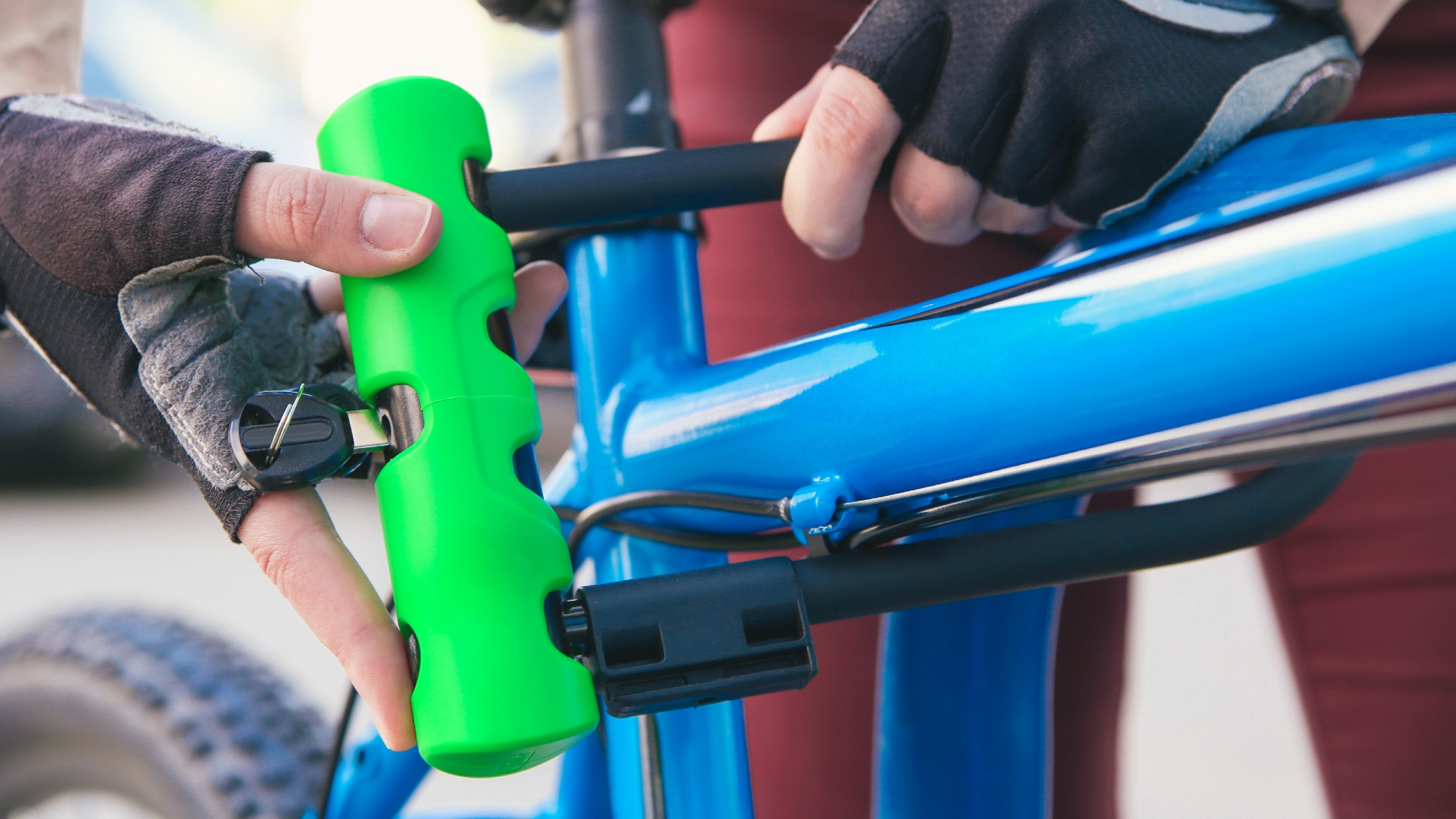
After your bicycle and pedals, the next item on a new cyclist's shopping list should be a bike lock. To help you choose one, we’ve got a dedicated page on all the best bike locks, and many of them will have a Sold Secure graded level.
If you are pondering who or what exactly Sold Secure is or does, and how the bike lock grades work, then read on.
I’ve spoken directly with Sold Secure, a bike lock manufacturer, and one of the best bike insurance companies to unpick the four lock grading levels and help you become the expert in your own bike security.
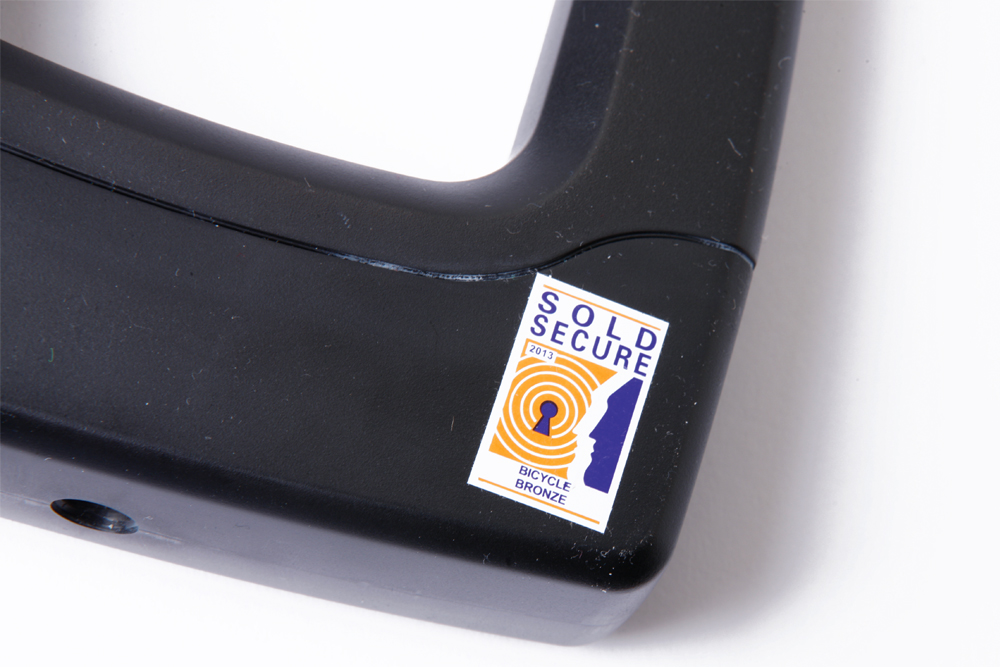
Who is Sold Secure?
Sold Secure is an independent lock testing house and certification body with purpose-built laboratories based in the UK.
The company doesn’t actually make any products itself, but verifies and certifies the ‘standard’ to which locks are made, grading them from bronze to diamond in the level of security they offer the consumer.
Originally backed by the British Government Home Office, Sold Secure was established in 1992 by two police forces. It’s now part of the Master Locksmith Association (MLA), and is a not-for-profit company, meaning that any profits are invested back into crime prevention.
This, according to Sold Secure Lab Manager, Guy McCaffery, means that the company can engage with all stakeholders when developing the technical specifications for each lock grading.
The latest race content, interviews, features, reviews and expert buying guides, direct to your inbox!
"We work closely with the police, who are incredibly quick to notify us of any new techniques bike thieves are using," McCaffery told me, highlighting the speed at which digital platforms such as Tiktok can share a new lock braking method across the country. Sold Secure "also liaise with insurance companies and lock manufacturers too to keep everyone up to speed on crime prevention," McCaffey said.
Asking about how much access to this information lock brands have McCaffery confirmed that Sold Secure "is all about making better products and outwitting thieves, so we can have input from the very beginning of the design process, although we won’t officially test a lock until it’s at the manufacturing stage, as so much can change between prototype and production line."
Speaking with Abus Product and Marketing Manager, Roger Seal, about this stage, he told me that "it’s always nail-biting when we arrive for the day of testing as you can’t be a hundred percent sure exactly what test will be used on the bike lock on the day, or how the lock will perform."
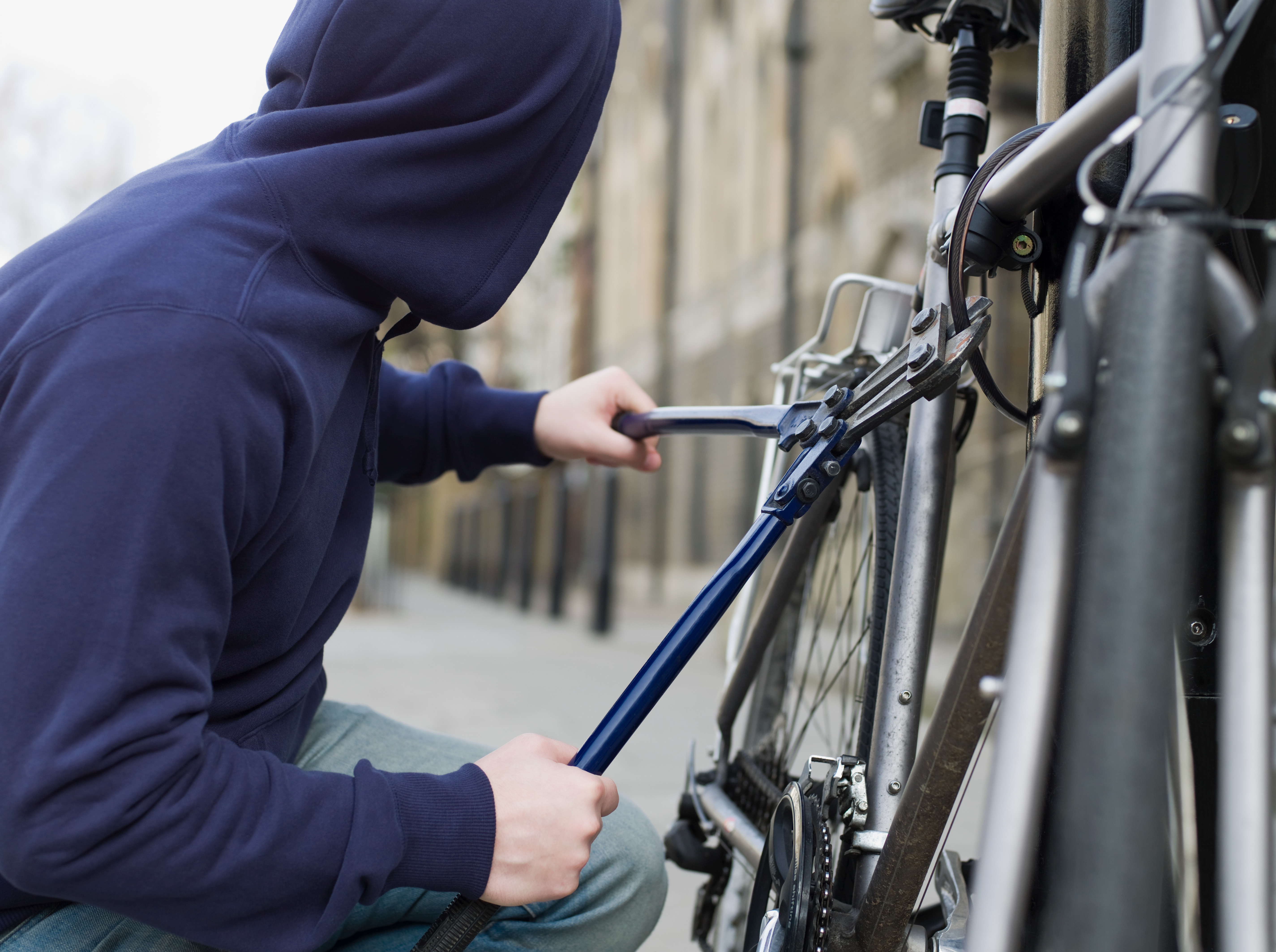
How are Sold Secure locks graded?
Understandably, both Seal and McCaffery are cautious when discussing how security features work and exactly what the locks are subjected to in the grading process.
"What I can say," McCaffery tells me "is that the British Criminals are the most determined and dedicated when it comes to trying to take other people's bikes, so our testing mirrors on street methods."
According to the Sold Secure website, lock grades are determined by the resistance to the tool used, the the grading system working as follows:
Sold Secure Bronze
Offering theft resistance against a basic tool list (aimed at preventing opportunist crime)
Sold Secure Silver
Offering theft resistance against an enhanced tool list (aimed at preventing more determined attacks)
Sold Secure Gold
Offering theft resistance against a dedicated tool list (aimed at preventing dedicated attacks)
Sold Secure Diamond (Pedal or Power)
The highest level of theft resistance including use of specialist tools (aimed at preventing the most destructive attacks that could include angle grinders)
While neither Abus nor Sold Secure would officially confirm, it’s also generally accepted that a measure of time taken to overpower a lock is also taken into consideration.
"Not wishing to applaud the British bike thief," says McCaffery "but it’s because we need to test against such a diverse set of situations that makes Sold Secure the go-to brand for bike insurance companies when specifying what level of security is required for a bike lock in order to thwart bike thieves."
Sold Secure bike locks are also audited each year, ensuring that the standards are reached for each level of protection. This can of course mean that a previously graded Sold Secure Gold, could be downgraded to Silver, so it's vital to ensure you annually check any of your existing bike locks to ensure they are still up to date.
What Sold Secure Lock Grade do I need?
"Locks are like bikes, it’s always N+1," laughs Seal, before adding on a more serious note, "honestly there is no such thing as a perfect lock."
When it comes to speccing a lock, Seal jokes that the exact opposite of buying a bike, "the more you pay the heavier the weight of the lock, which in lock terms generally means the more robust the lock."
However, this does impact on practicalities. "It depends on the application," says Seal, adding, "a lock used to secure your bike at home will be very different from one used to secure your bike when commuting. You have to balance usability, security, and convenience."
Seal is, of course, assuming that you're not commuting and leaving a five-figure bike unattended, outside a train station. An e-bike or e-cargo will probably be the exception to this bike value rule, but thankfully you'll be able to carry a more substantial lock, such as Sold Secure Dimond Power.
Of course, if your bike is insured, it's more than likely that the insurance company will stipulate what level of protection is needed, and if you are UK based, it’s incredibly likely to be a Sold Secure graded bike lock.
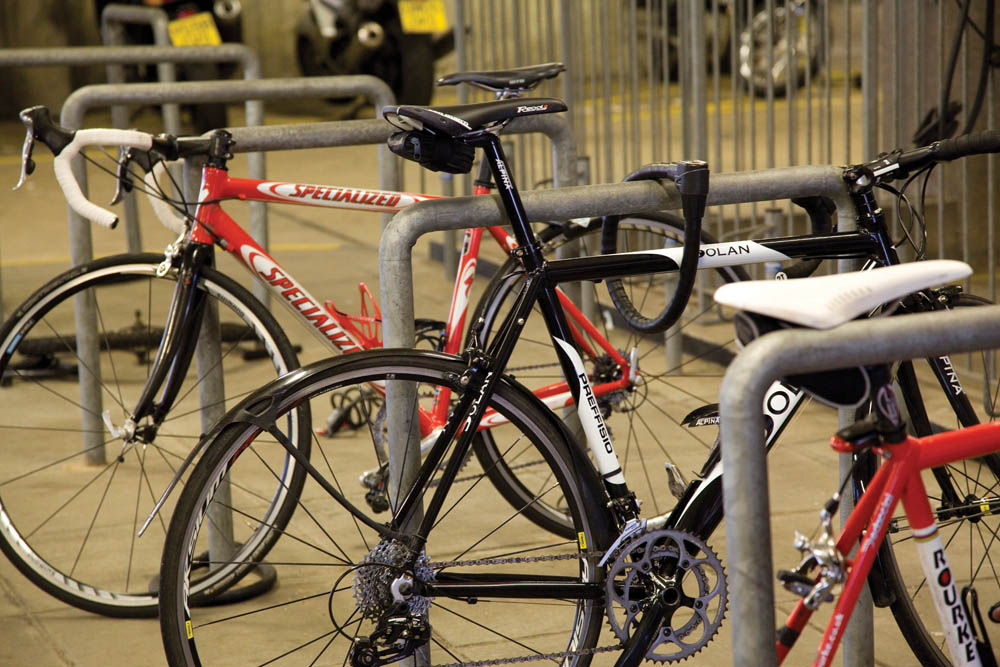
Chief Growth Officer at Bikmo Bike Insurance, Ben Thompson, told me "Sold Secure is the premier testing and certification house for security products, and we use their ratings system as a minimum requirement for a lock used to secure a cycle."
Bikmo specifies that bikes with a value up to £250 require a Bronze graded Sold Secure lock, bikes worth up to £251- £1500 a Silver graded lock, and bikes with a value over £1500 Gold or Diamond Rating Sold Secure lock.
"Though to be honest," says Thompson "I would buy the best lock you can afford no matter what the minimum requirement is."
It’s a philosophy echoed by Seal at Abus and McCaffery at Sold Secure, agreeing that the cost of a bike is only one part of its value.
"When we’re out a crime prevention events, I always ask people what the bike is worth to them," says McCaffery, adding that it's often "not just the expense of replacing a stolen bike, but if it’s your means of transport to work, or a hobby you love, the impact of replacing it will far outweigh the cost of a Sold Secure Gold or Diamond lock for your bike."
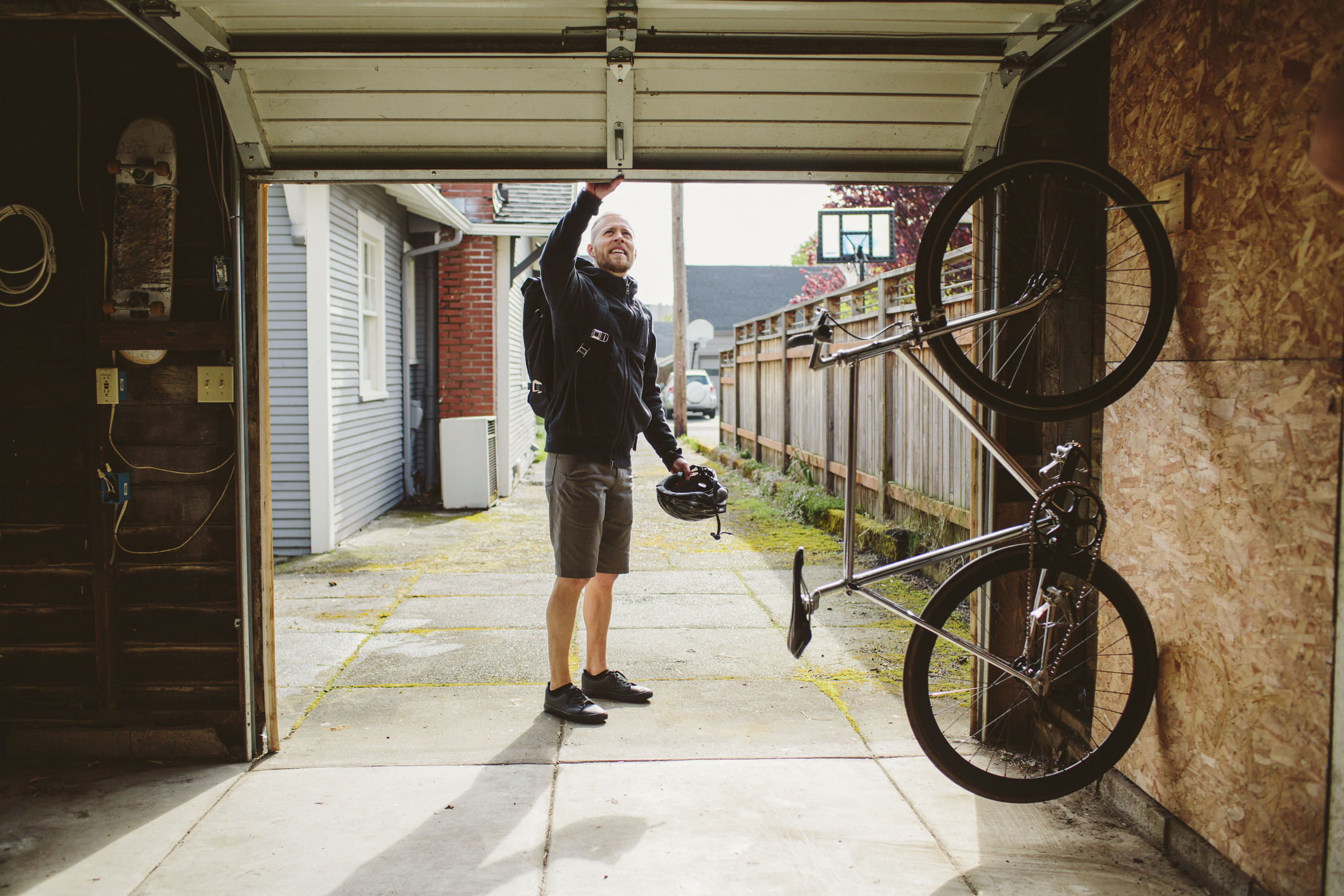
Is a Sold Secure bike lock all I need to consider?
In a word, no.
"Bike thieves are relentless," sighs McCaffery. "Unfortunately, they will always be looking for a bike to take, and as awful as it sounds, it's a case of making yours harder to take than someone else's."
"There are other test houses in other countries, such as the Dutch ART-rated locks" confirms Seal "so a lock with a few kite marks to prove it’s undergone rigorous testing will always be a good approach when choosing" he suggests.
Thompson agrees. "Good security hygiene is always going to be beneficial, no matter how much your bike is worth," he says, expanding to add examples of best practices. "When a bike is left unattended away from home," he says "locking it through the frame and to a suitable immovable object is equally as important as using the correct lock."
"The other important aspect to consider, is using a qualified and certified MLA fitter," says McCaffery, talking specifically on the fitting of robust ground anchors and garage defenders. "All MLA locksmiths are DBS checked, inspected, and qualified with us to be approved."
"It’s also why you should register your lock" concludes McCaffery "because if you do lose the key or forget the combination, it will be much easier to resolve if the lock company knows you are the legitimate owner."
Hannah is Cycling Weekly’s longest-serving tech writer, having started with the magazine back in 2011. She has covered all things technical for both print and digital over multiple seasons representing CW at spring Classics, and Grand Tours and all races in between.
Hannah was a successful road and track racer herself, competing in UCI races all over Europe as well as in China, Pakistan and New Zealand.
For fun, she's ridden LEJOG unaided, a lap of Majorca in a day, won a 24-hour mountain bike race and tackled famous mountain passes in the French Alps, Pyrenees, Dolomites and Himalayas.
She lives just outside the Peak District National Park near Manchester UK with her partner, daughter and a small but beautifully formed bike collection.
